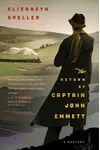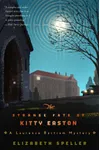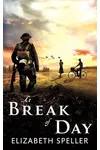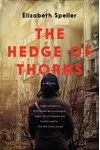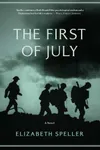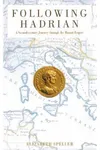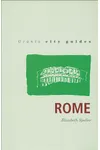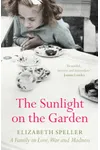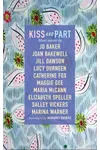Picture a British storyteller who weaves haunting mysteries from the shadows of post-World War I England—meet Elizabeth Speller! With her debut novel, The Return of Captain John Emmett, Speller captured readers’ hearts, blending intricate historical mysteries with the raw emotion of a generation scarred by war. A poet, historian, and master of evocative prose, she crafts stories that linger like a foggy English morning.
Born in Oxford and educated at Cambridge, Speller’s work reflects her deep love for history and the human spirit. Her novels, non-fiction, and poetry explore themes of loss, betrayal, and resilience, earning her critical acclaim and a devoted following. Let’s dive into the life and legacy of this captivating author!
The Making of Elizabeth Speller
Elizabeth Speller grew up in Oxford, a city steeped in history, which sparked her fascination with the past. After studying classics at Cambridge, she honed her craft as a poet and non-fiction writer, contributing to publications like Vogue and The Financial Times. Her diverse career, including ghost blogging and writing a requiem libretto for Linda McCartney, showcased her versatility. Speller’s shift to fiction came with a desire to explore the emotional aftermath of World War I, a period she found both tragic and compelling. Her meticulous research and poetic sensibility laid the foundation for her gripping historical mysteries.
Elizabeth Speller’s Unforgettable Stories
Speller’s debut, The Return of Captain John Emmett (2010), introduced Laurence Bartram, a war-weary veteran turned detective. Set in 1920s England, the novel unravels the mysterious death of a soldier, blending psychological depth with a tightly woven plot. Critics praised its vivid portrayal of post-war trauma, earning it a spot as a Richard & Judy Summer Book Club pick. The sequel, The Strange Fate of Kitty Easton (2011), follows Laurence to a village haunted by a child’s disappearance, weaving family secrets with the lingering scars of war.
Beyond her Laurence Bartram series, Speller’s The First of July (2013) is a poignant war epic tracing four soldiers’ lives during the Battle of the Somme. Her non-fiction, like Following Hadrian, showcases her ability to bring ancient history to life, while her memoir, Sunlight on the Garden, explores her family’s chaotic legacy. Speller’s style—richly detailed, emotionally resonant, and meticulously researched—bridges the gap between literary fiction and gripping mystery, making her work a treasure for history buffs and suspense fans alike.
Why Elizabeth Speller Matters
Elizabeth Speller’s impact lies in her ability to give voice to the silent struggles of a war-torn generation. Her novels capture the psychological toll of conflict, from shell-shocked soldiers to fractured families, with a sensitivity that resonates today. By blending historical accuracy with compelling mysteries, she invites readers to reflect on resilience and redemption. Her work, though niche, has inspired comparisons to Jacqueline Winspear’s Maisie Dobbs series, carving a unique space in historical fiction. Speller’s poetic lens and historian’s eye make her a standout storyteller whose stories endure.
- Born: Oxford, England
- Key Works: The Return of Captain John Emmett, The Strange Fate of Kitty Easton, The First of July, Following Hadrian
- Awards: Orange New Writers pick, Richard & Judy Summer Book Club selection
- Fun Fact: Speller divides her time between Gloucestershire and a cottage in Greece!
Snag The Return of Captain John Emmett and dive into Elizabeth Speller’s haunting world of history and mystery!
